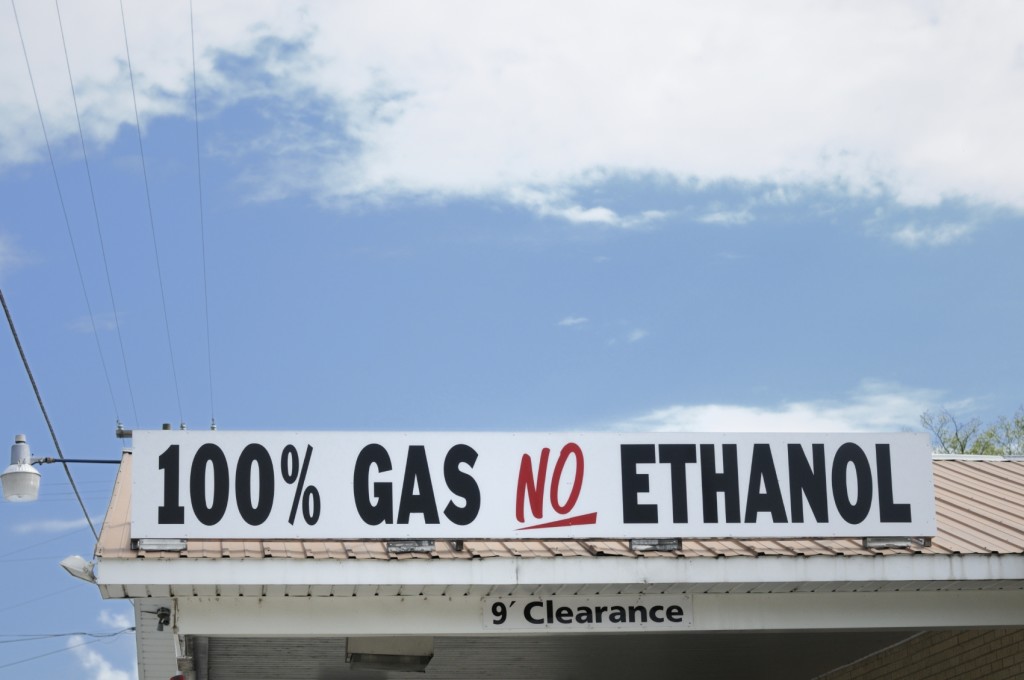NRDC Misleads on Keystone
A recent report by the National Resource Defense Council (NRDC) makes the case that Americans should reject the Keystone XL pipeline because its construction would raise gasoline prices in the U.S. The NRDC report is based on absurd economic arguments and distorted analysis from another research group. Most ironic of all, NRDC has been a strong advocate of a government cap on carbon dioxide emissions, with the express purpose of raising the cost of fossil fuel energy. It’s therefore strange for them to be warning that Keystone would raise gasoline prices.
The following excerpt summarizes NRDC’s recent claims about Keystone raising U.S. gasoline prices:
The Keystone XL tar sands pipeline would divert oil from the Midwest to refineries on the Gulf Coast of Texas. Midwestern refineries produce more gasoline per barrel than refineries in any other region in the United States. That gasoline is then sold to U.S. consumers. In contrast, refineries on the Gulf Coast of Texas produce as much diesel as possible, much of which is exported internationally. By taking oil from midwestern gasoline refineries to Gulf Coast diesel refineries, Keystone XL will decrease the amount of gasoline available to American consumers.
Meanwhile the Keystone XL pipeline will increase the price that gasoline producing refineries in the Midwest pay for crude oil. TransCanada, the company sponsoring the pipeline, pitched the pipeline to Canadian regulators as a way of increasing the price of crude in the United States. Right now, Midwestern refineries are buying crude oil at a discount—a deep discount. This allows them to produce products more cheaply than they would otherwise be able to. Building Keystone XL would change that. If TransCanada’s analysis is accurate, under current market conditions, Keystone XL would add $20 to $40 to the cost of a barrel of Canadian crude—increasing the cost of oil in the United States by tens of billions of dollars. [Bold added.]
On the face of it, this analysis is absurd. The development of Canadian oil sands—and building pipelines to bring the new product to market—will lower worldwide crude prices. Now the NRDC study is alleging that Keystone will cause the United States market (in particular the Midwest refineries) to pay $20 to $40 more for a barrel of crude.
The idea here is that currently the Midwestern refineries, given their proximity to the Canada oil sands, are enjoying the benefits of the glut of Canadian production, and so they receive a discount on their crude compared to the prices that other buyers around the world have to pay. Before continuing, stop to consider what that means: Because Midwestern refineries are lucky to be located next to booming Canadian oil sands development, they get very cheap crude oil. We’re glad NRDC acknowledges that part of the issue.
However, the apparent problem is that from the perspective of Canadian exporters, they would rather be able to sell a barrel for (say) $75 to a Gulf Coast refiner, rather than at a discounted price of (say) $55 to a Midwestern refiner. The Keystone pipeline would allow them to physically do this, i.e. to efficiently move their product to where demand is the highest. This is the logic behind NRDC’s claim that building Keystone would raise crude prices in the Midwest.
Yet the argument is nonsense. Suppose the NRDC gets its way, and the U.S. government forbids construction of Keystone. Do we really think the Canadians are going to be content, selling their excess oil production at a steep discount to Midwestern refiners? Of course not. There are other refineries on planet earth besides those in the United States, and eventually the Canadians will figure out a different way to get their products into the hands of the highest bidders. For example, the Enbridge Northern Gateway pipeline would move Canadian crude from Alberta due west to a port in British Columbia, where it can be shipped to Asian markets. If NRDC thinks Canadians will be content to forever sell their crude at a steep discount to Midwestern refiners, they clearly don’t understand the worldwide oil market.
Beyond the basic error in the analysis, the NRDC paper distorts the actual position of TransCanada. The citation in the NRDC paper for these claims no longer works (i.e. the URL listed in their endnotes doesn’t lead to a working webpage), and thus far a telephone call to NRDC for clarification has not been answered. However, IHS Purvin & Gertz, the research group supplying the analysis for TransCanada on this issue, has released an official rebuttal in the form of a FAQ to the claims put out by NRDC and others. Here is Purvin & Gertz’s side of the story:
Q. What did IHS Purvin & Gertz conclude regarding the impact of the Keystone XL Pipeline on heavy crude prices in Canada?
A. We concluded that Keystone XL could increase the price that Canadian producers receive for heavy crude by $3 per barrel in 2013. This increase in heavy crude price was estimated to provide total benefits to Western Canadian producers in 2013 of between $1.8 and $3.4 billion.
In other words, there were many other factors involved in the analysis that TransCanada relied upon, and instead of NRDC’s claim of $20 – $40 per barrel, the actual number (at least according to the FAQ issued by the people who were being cited) was more like a $3 difference.
The global oil market is interconnected, and large price discrepancies cannot last long, absent government restrictions. Even so, temporary bottlenecks can develop in particular areas, leading to temporary price differentials. A Department of Energy analysis of the Keystone pipeline goes into some detail on these issues, and why the crude price spread currently exists across U.S. regions. Ironically, the DOE analysis projects that building the Keystone pipeline would reduce U.S. gasoline prices on average.
If the goal is to lower energy prices and ease the pain at the pump, governments should remove obstacles to the development of both conventional and unconventional natural resource deposits. Greater global crude production, other things equal, obviously leads to lower worldwide crude prices. As far as regional pricing differences, the United States government cannot prevent Canadians from doing the obvious thing of selling their crude to the highest bidder on the world market. The U.S. government can, however, ensure that the “shovel ready” pipeline construction jobs, as well as refining jobs, go to Canadian workers rather than U.S. ones, by blocking Keystone.



